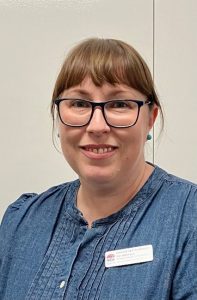

Belinda Lee
Belinda has worked as a Dietitian for twenty years, primarily in acute/community mental health for eleven of those years and has recently moved into Integrated Care. Spending the majority of her career in NSW rural areas and working across government, NGO and private healthcare settings, has afforded her the understanding of the difficulties faced by individuals accessing these systems for both physical and mental health care and the complex interaction between the two.
Working with the WNSWLHD Integrated Care in the Community: Planned Care for Better Health and Emergency Department to Community (EDC) program teams, Belinda is currently supporting the district roll out and evaluation of the EDC program.
Belinda holds Master of Nutrition and Dietetics and Bachelor of Food Science and Nutrition from Griffith University and is currently studying Graduate Diploma in Psychology at CSU.
Abstract
Title: Beyond the Emergency Department- Dubbo Emergency Department to Community Program
Author(s): Leanne Stimpson
Introduction: Emergency Department to Community Program (EDC) supports people who frequently present to ED with intersecting complex physical, social and mental health needs. Individuals are linked with appropriate community based health and social service providers. Mental Health and Integrated Care clinicians, facilitate care collaboration with key stakeholders within the health system and local communities. The Dubbo EDC program became operational in February 2023, with Bathurst EDC program commencing in 2020.
Method: A Holistic and Person Centred Model of Care is utilised to address various physical, social, cultural and mental health needs that significantly impact the health and social wellbeing of the individual. It includes identifying the target cohort through multiple entry points, assessment, care planning, case conferencing, interventions, monitoring and transfer of care. Multidisciplinary and multisectorial shared care planning is a key element of the Model, with families/carers included in support planning.
Results & Findings: Improves individual’s care experience through culturally safe, timely, and appropriate resource allocation. Achieved by driving care in the community; connecting people to the right care in the right place, at the right time.
Improved access to physical health care and health coaching for individuals presenting predominantly with ill mental health/living with mental health disorders and increased access to mental health support for those living with chronic health conditions. Making the link between physical and mental health and how these can be concurrently managed at home.
Improves efficacy of care by reducing avoidable presentations to ED with a monetary saving and meeting individual holistic health needs.
Discussion: The robust partnership between Mental Health and Integrated Care fosters positive health outcomes for people with complex physical, mental; health and social needs with an effective use of resources. This provides individuals with the appropriate social and emotional supports which is vital for self-empowerment.